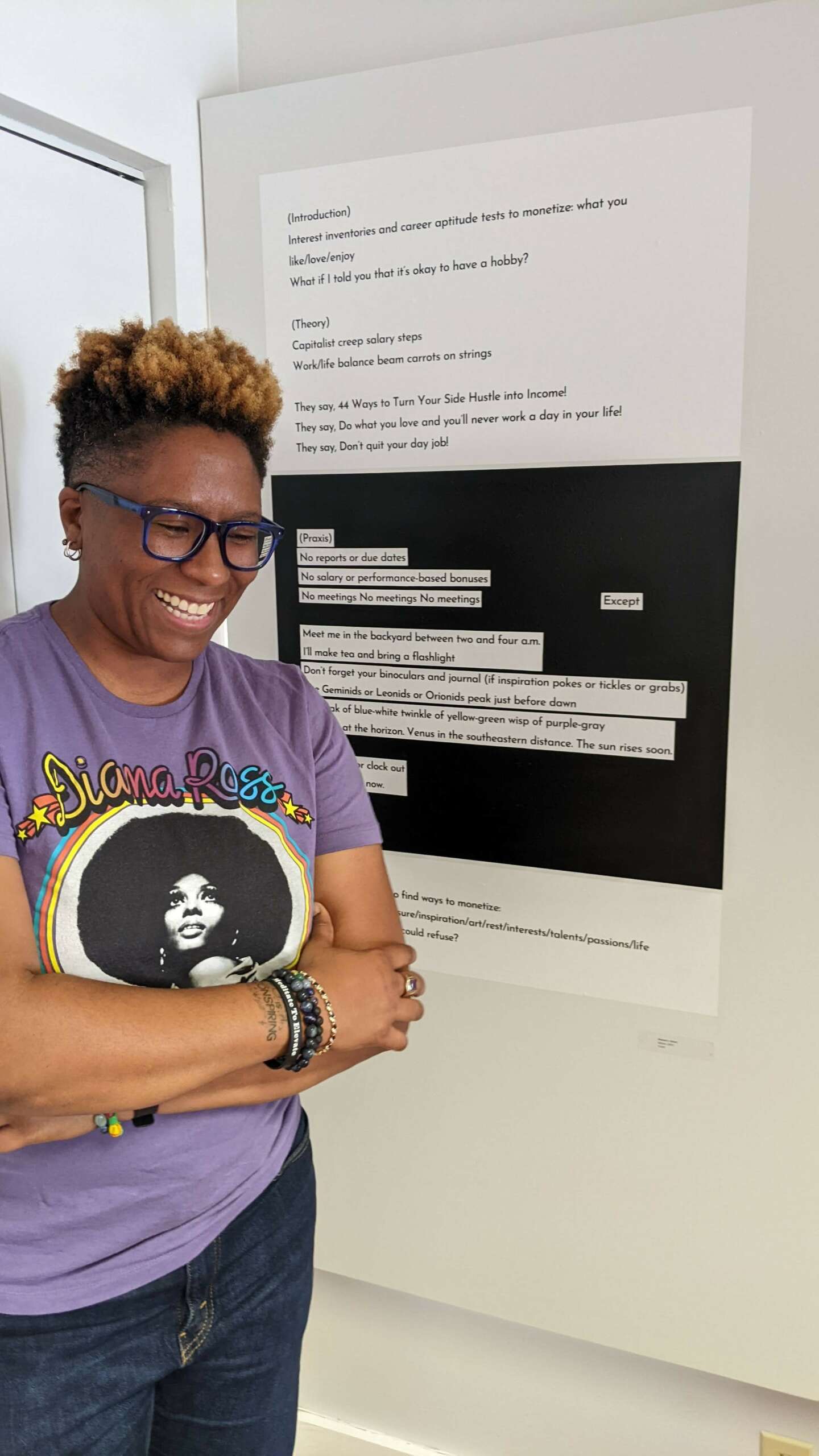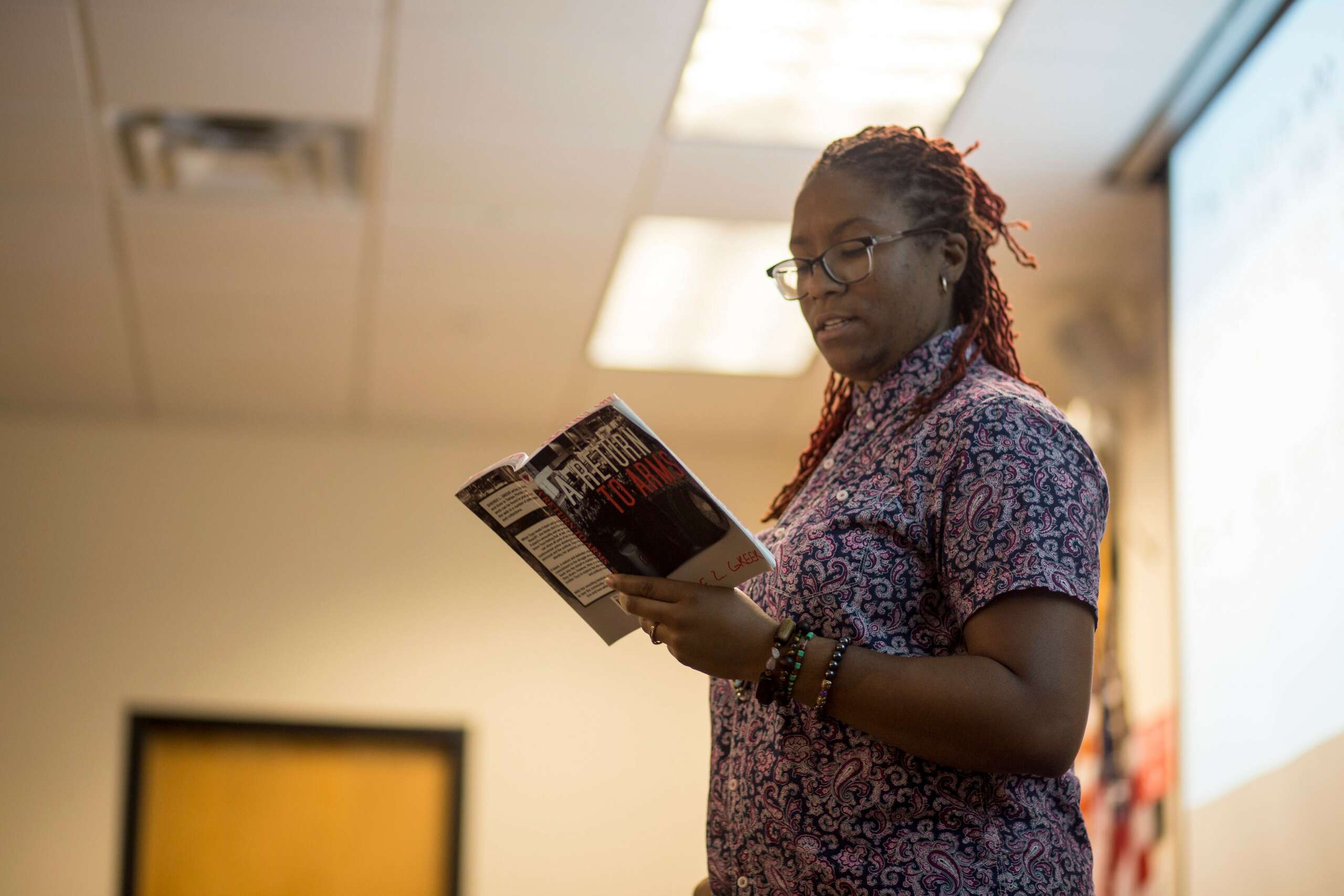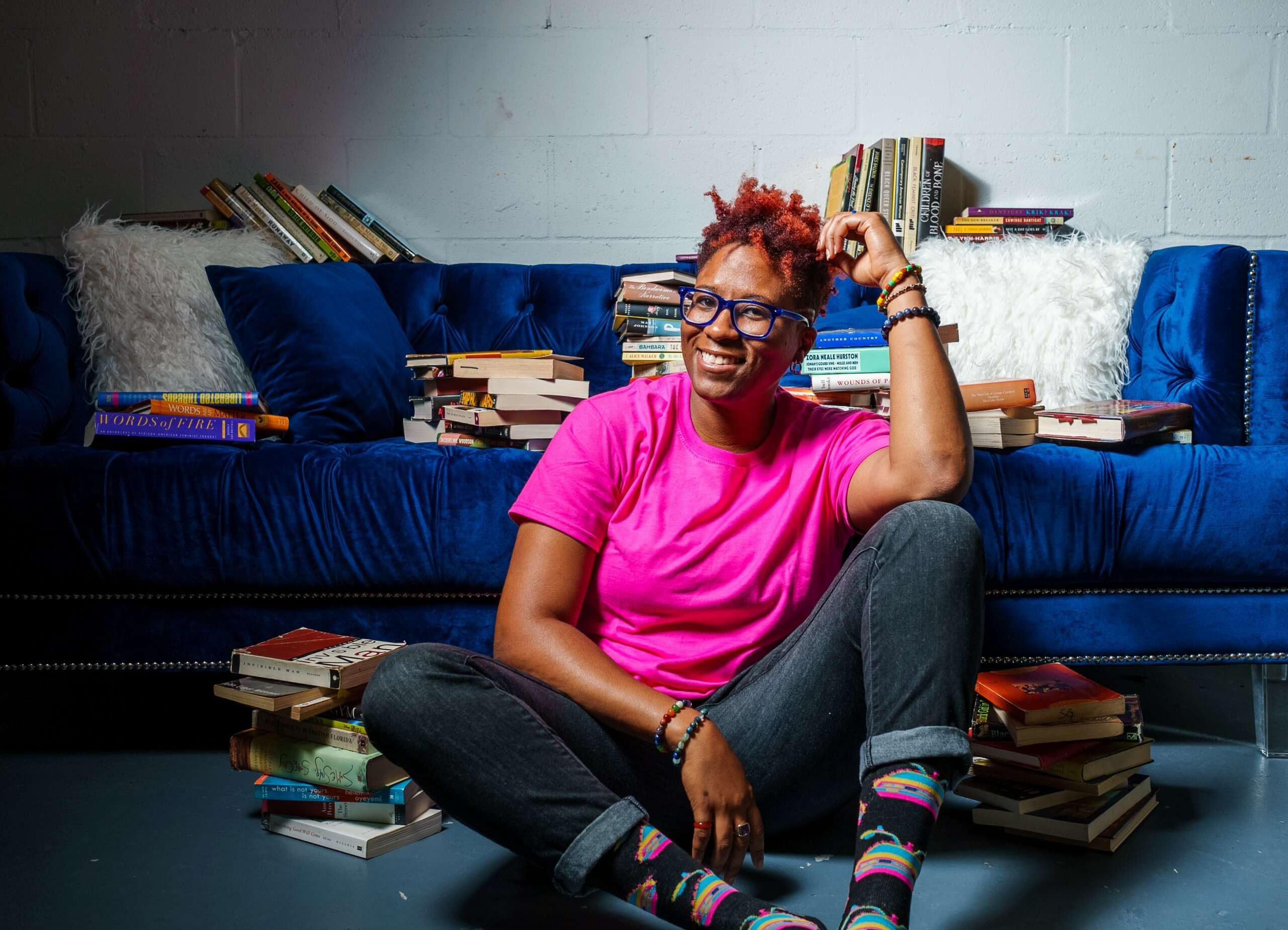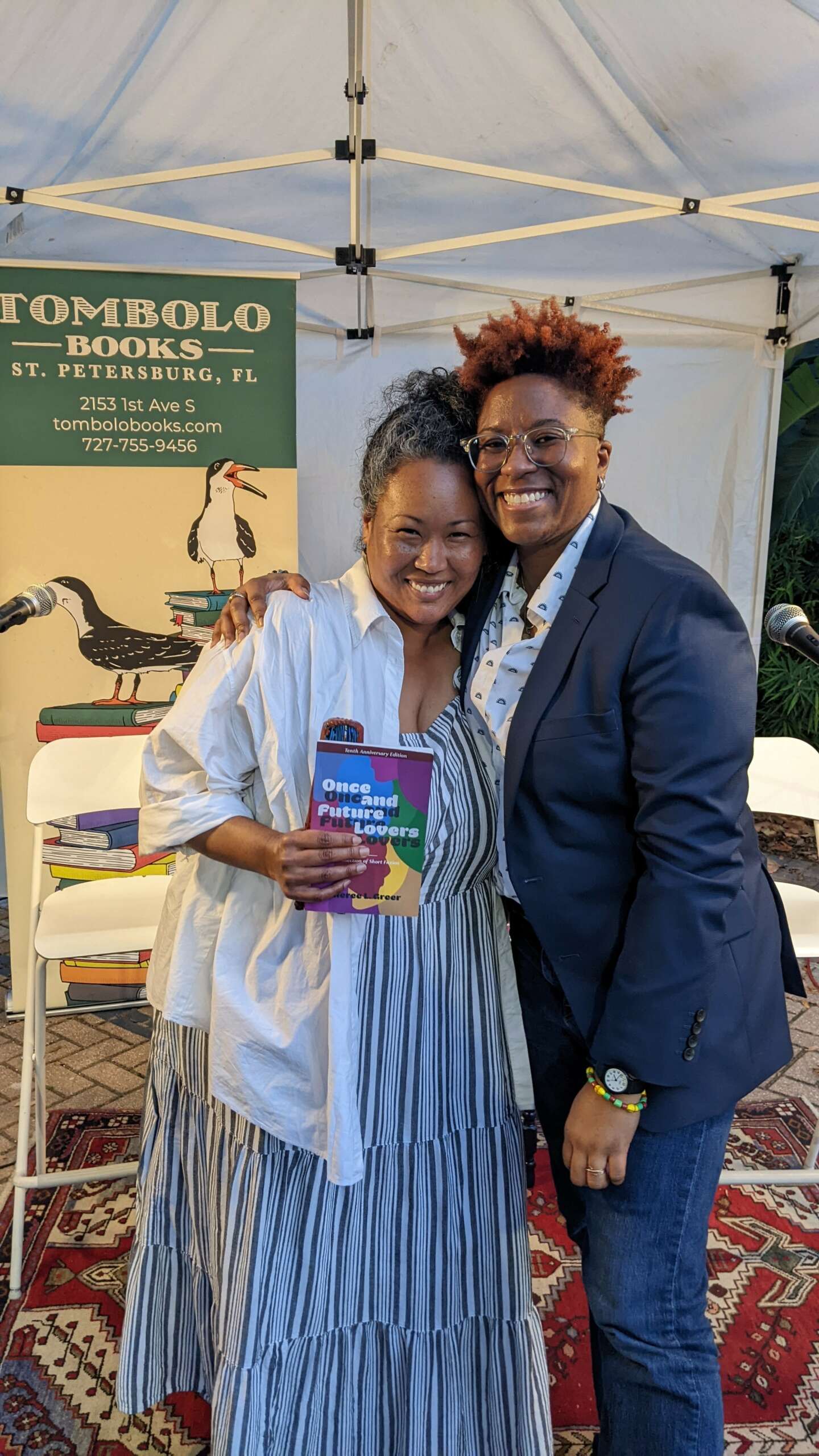Alright – so today we’ve got the honor of introducing you to Sheree L. Greer. We think you’ll enjoy our conversation, we’ve shared it below.
Sheree L., appreciate you joining us today. Can you open up about a risk you’ve taken – what it was like taking that risk, why you took the risk and how it turned out?
In 2021, after twelve years of teaching, I resigned from a full-time teaching position at a state college in Florida. I was nervous to take the leap, afraid to leave the position that had made so much possible financially and personally. I’m a writer and most of my colleagues are also professors, so I also felt a little ungrateful, knowing that this job I felt I needed to leave is the job that so many of my writer friends worked to have and hold as the achievement that shines alongside a writing career. But the truth was, I was tired. I was burnt out from administrative decisions that took the creativity and freedom out of teaching, and as the position became more and more prescriptive and restrictive (I’m in Florida, ground zero of book and DEI bans), I found myself evaluating my career overall. I thought about how most of my energy, the best of my creative energy and lion’s share of my mental acuity, was going to grading student essays rather than my novels, short stories, and essays. The state college load where I worked is five classes each semester with two in the summer. I also taught overloads to make up for the low wages (teaching wages in Florida are the lowest in the nation). I was giving the job all I had, which left very little for my creative practice, my community-building, and my writing career.
I had felt this feeling before, back in 2005 when I left a career as an IT professional to pursue an MFA. I took the risk then. I left the nice–very nice actually–salary and corporate AmEx card and followed my heart to give writing my all. I needed to remind myself that when I took that risk, through the fear and uncertainty, everything turned out fine. Better than fine even. So, I talked with my wife and shared with her this need to upset the trajectory of my teaching career in favor of centering my writing career. A firm believer in my talent and my drive, my wife told me she had my back and trusted me. The only thing left was to trust myself and trust my heart. I leaned into my writing community, exploring options for alternative teaching opportunities, editing and art-making projects, and going after funding for the literary arts organization I ran “on the side,” and secured a plan for sustaining myself–with the help of my partner of course–as I took a risk on myself, betting that if I follow my heart, my original passion for writing and art-making, I would win. And I am. I’m winning.
My writing is stronger and more focused, garnering more attention than ever before. My creative practice is firmer and more generative. My teaching, publishing, curating, and freelance work is affirming and substantive. It’s been three years since I took the leap, and there are definitely highs and lows, but it feels more like soaring and less like sinking.

Great, appreciate you sharing that with us. Before we ask you to share more of your insights, can you take a moment to introduce yourself and how you got to where you are today to our readers.
I’m a writer first and foremost, so folks can get to know my work by reading my novels, “Let the Lover Be” and “A Return to Arms” or my short story collection, “Once and Future Lovers.” I am currently working on nonfiction essays while continuing my work in fiction, so there are opportunities to read my latest work both in print and online at Bellevue Literary Review, Fourth Genre Magazine, Obsidian Literature and Arts of the African Diaspora, Burrow Press Review, and Action. Spectacle. I’ve been writing since I was a child, but didn’t feel like writing was something I could actually do as anything more than a hobby until I was twenty-two. My creative practice as a novelist, short story writer, and essayist is the most important thing to me.
Outside of my literary work, I am the founding director of Kitchen Table Literary Arts, which is an organization that showcases and supports the work of BIPOC women and femme-identified nonbinary writers and poets. We offer classes, workshops, retreats, and publishing opportunities while partnering with community partners to engage youth, especially those who are touched by the foster care system. We are always looking for corporate partners, foundation funding, and individual donors who believe in our work and feel passionate about supporting our programs.
To bridge the gap between my creative work and my KTLA work, I work as a teacher, editor, and freelance business development consultant. I teach creative writing classes, work with writers to bring their memoir and novel projects to life, and consult entrepreneurs looking to develop business and/or marketing plans for their new businesses and start-ups.
Now that I’m writing all this out, I’m like, dang, I’m busier than a mug! It’s true, but it feels different than when I was teaching full time for the college. This time, even in all the things I’m doing, I’m enjoying a freedom and focus that I didn’t have before. I’ve seen my capacity increase, my energy bursting, for projects and communities that are aligned with my vision for love-led, innovative work.
For example, I most recently joined a southern arts collective called, “The Rubber Bands,” to curate ekphrastic art exhibitions featuring BIPOC women artists and poets. The work, which has been funded by the National Endowment of the Arts and the Poetry Foundation among others, has been a way to integrate my work as an art adminstrator, writer, and community advocate. Now in its fourth year, the work represented an acknowledgement for me that what fuels me as a creative and an entrepreneur is the ability to work on dynamic, diverse projects.
Since I’m open to work on a variety of projects, I am often digging into my experience as a cross-genre writer but also my previous careers as a professor and an IT/HR business professional to take on clients with goals and projects that exist at the intersection of art and community, exploration and enterprise.
I’ve worked on business plans for restaurants and dance companies, cowork spaces and mobile salons. I’ve edited manuscripts that featured epistolary messages to and from ancestors and alien civilizations thousands of years into the future. I’m loving the diversity of my work and thankful for the diversity of my experience and my skill set.

Do you think there is something that non-creatives might struggle to understand about your journey as a creative? Maybe you can shed some light?
We’re really conditioned to see things in binary forms. We want things easily compartmentalized, easily labeled, and easily identified. The life of a creative is not really built for those kinds of binary definitions and siloes. It was a realization that I had to come to for myself as well, especially walking away from my job and title as a professor. It was easy to answer that question, “What do you do?” And I’d say I’m a professor, which held a lot more weight in most circles than saying, “I’m a writer.” Even when you say, “I’m a writer,” folks want to pin that title to a single book or show or film that would be easily recognizable.
I remember when I was going to resign, I asked my mother, who always called me “professor” when I called her, what she was going to call me now. She hesitated a bit. I think she finally said, “writer” or “artist,” but she really doesn’t call me anything related to my profession anymore. It struck me. I mean, I don’t know that I thought about my job as being my title, my identity, in that way before. It made sense to me, too, that being called “professor” was not a true reflection of how I saw myself.
What I decided was that I didn’t really want to be one thing. I didn’t want to feel pigeon-holed or limited by anything. Even my writing. It’s why I pursue whatever takes my attention, whatever feels right to me and my art-making, from fiction to nonfiction, essays to poetry, and even a play at some point, I want to be able to explore what being an artist means, what being creative means, in every sense of the word.

What’s a lesson you had to unlearn and what’s the backstory?
I had to unlearn that my worth is not dictated by how much money I make or by how much I produce. I gotta give a shout out to my therapist on this one. When I first started working as an entrepreneur and centering my writing, I had days that were slow or not as productive, days when I would just be dragging physically or mentally. I was always trying to find a reason–I’m tired from them twelve years as full-time faculty and all the other work I was doing simultaneously (two novels, founding a whole literary arts org)–or beating myself up about a day that wasn’t productive in terms of word count or submissions. My worth, whether or not I’m a writer or working hard enough, was bound up with a feeling of working myself to exhaustion, to being frustrated and burnt out.
Unlearning the relationship between effort and worth is a deep one I’m still unlearning. I am trying my best, each day, to know that I am enough regardless of how the day goes.

Contact Info:
- Website: https://www.shereelgreer.com/
- Instagram: https://www.instagram.com/shereelgreer/
- Facebook: https://www.facebook.com/sheree.l.greer
- Linkedin: https://www.linkedin.com/in/sheree-l-greer-mfa-9b7708133/
- Other: https://www.patreon.com/shereelgreer
Image Credits
Remember Wynn


